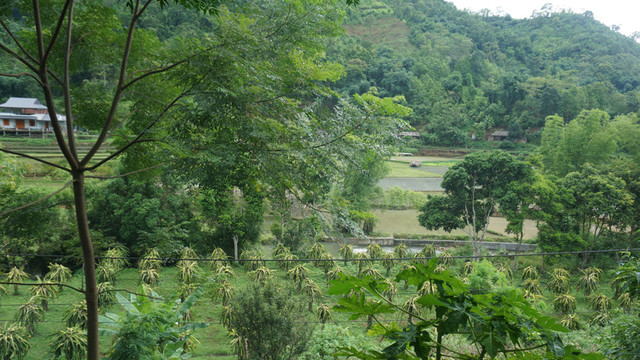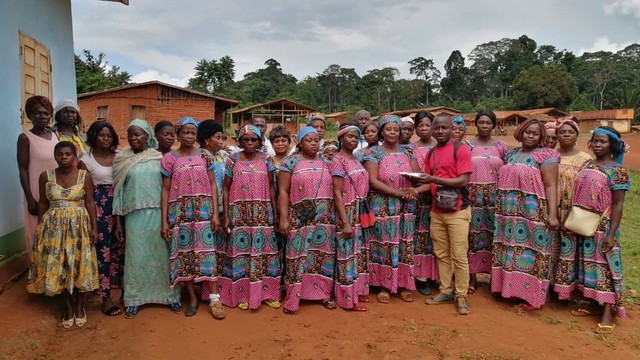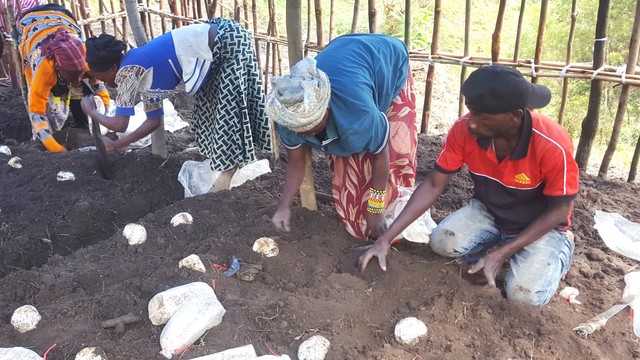Implementing biocredits: making the market work for nature and people
This online event discussed how we can use economic incentives to protect biodiversity and reduce poverty.

Economic and social incentives have supported conservation efforts for Rwanda's mountain gorillas population (Photo: Joseph Foltz/USAID, CC BY-NC-ND 2.0)
The rich diversity of life in all its forms is declining faster than at any time in human history, pushing us towards an ecological and economic tipping point. To mitigate this threat, there is growing support for using market incentives as a conservation tool to protect nature and reduce poverty.
This IIED Debates event explored the new concept of biodiversity credits and its potential role to increase biodiversity while also making sure some of the world’s poorest people who live in biodiversity hotspots benefit.
Tackling biodiversity loss is a growing priority for human survival. Despite extensive efforts to protect earth’s living species, perverse incentives continue to drive the degradation of ecosystems, and their living inhabitants.
Too often governments and the private sector view biodiversity as lacking in value unless it is sold for profit or industrial development. This causes destruction, such as forests being replaced with palm oil and pulp and paper plantations, soils and waterways polluted by chemical dumping and oceans overfished.
By making biodiversity management more financially attractive and creating market incentives for positive action, we can bring conservation and development work together.
An emerging concept, biodiversity credits – ‘biocredits’ – uses economic incentives to help save biodiversity and raise funds for conservation, while making sure that the women, children and men living in and around these areas also benefit. As carbon credits work to control greenhouse gas emissions, biocredits offer a way to finance biodiversity improvements.
This IIED Debates event hosted in partnership with UNDP, explored the role of biocredits in mitigating biodiversity loss. We heard leading researchers and practitioners discuss how economic incentives can be implemented and how they can provide finance to those living in remote rural areas.
Through the examination of biocredit case studies, our speakers explored different ways to measure and implement them, debated the opportunities and the challenges, and evaluated what stakeholders, mechanisms and infrastructure is required for effective biocredits.
About the speakers
- Paul Steele (moderator) is chief economist in IIED's Shaping Sustainable Markets research group. He specialises in the linkages between environment, climate and poverty reduction
- Anna Ducros is a researcher on inclusive blue and green economy in IIED's Shaping Sustainable markets group and works on topics such as biodiversity finance and retail procurement in small-scale fisheries
- Pauline Nantongo Kalunda is the executive director of ECOTRUST, a Ugandan biodiversity conservation NGO which enhances social welfare by promoting innovative and sustainable environmental management
- Alex Tozer is director of operations at Operation Wallacea
- Mariana Sarmiento is the chief executive officer of Terrasos specialised in the structuring and operation of environmental investments
- Simon Morgan is the chief biodiversity officer and co-founder of ValueNature. He is currently launching a biodiversity token to generate novel revenue streams for conservation landscapes
- Maxim Vergeichik is the senior nature economist at UNDP.
Event coverage
A recording of the event is available below or on IIED's YouTube channel, where viewers are also able to use timestamps to go straight to specific speakers.
About IIED Debates
This event was part of the IIED Debates series. Through the convening of expert speakers and external stakeholders, IIED brings together an international community to discuss critical issues.
IIED Debates encompass both physical and digital events, including critical themes, breakfast debriefs and webinars. These events are public and are hosted regularly throughout the year online and when possible in our London and Edinburgh offices.
IIED events newsletter
Sign up to our mailing list for updates and invitations to events throughout the year, including webinars, critical themes and debriefs.
Contact
Juliette Tunstall (juliette.tunstall@iied.org), IIED's internal engagement and external events office



